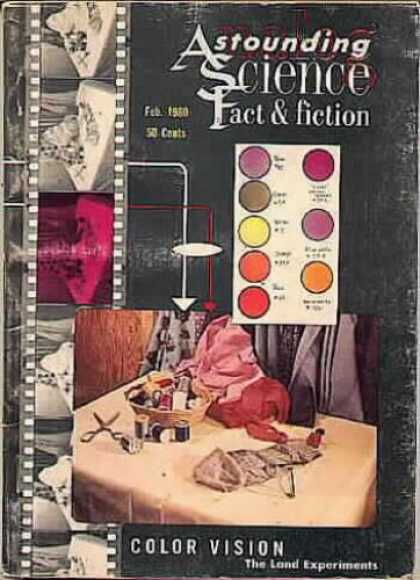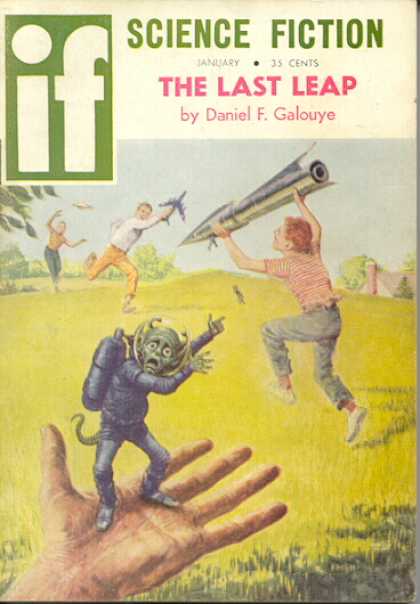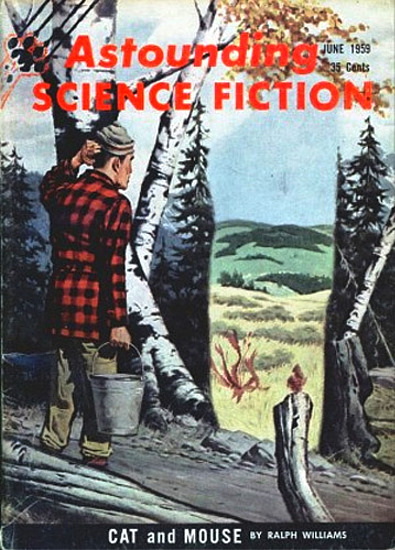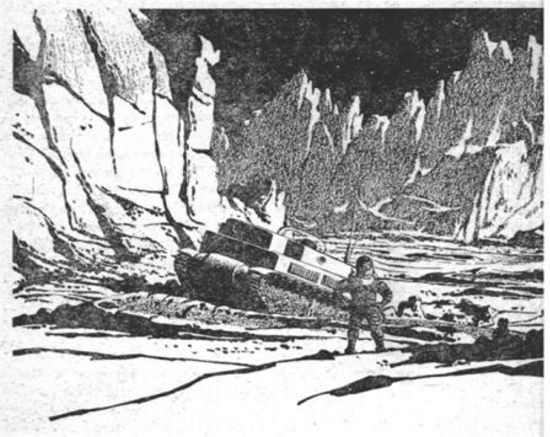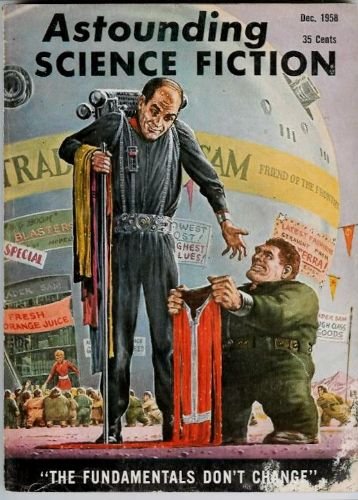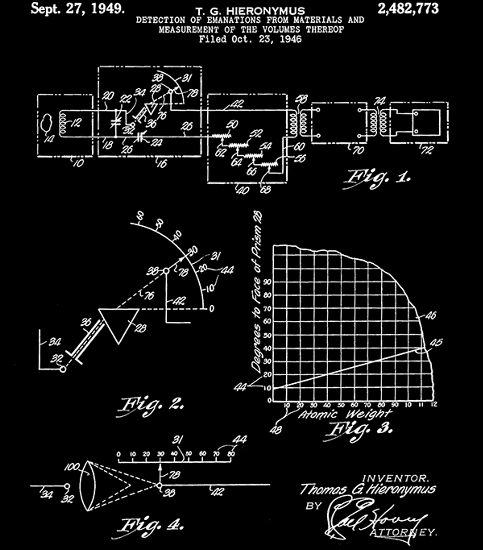
Every science fiction digest has a flavor. Part of it is due to the whimsy of the editor, part of it is the niche the magazine is trying to fill, and part of it is luck of the draw.
Astounding can be summed up in just a few words: psionic, smug, workmanlike, crackpot, inbred.
Not necessarily in that order.
You see, every editor has an agenda. For F&SF's Tony Boucher, and his successor, Paul Mills, it's to have as literary a magazine as possible. For Galaxy and IF's H. L. Gold, it's to present solid science fiction without resorting to hackneyed clichés of the pulp era.
For Astounding's John Campbell, the motivation might once have been to mentor young writers so that they could create the best science fiction of the day. Certainly, Campbell's magazine pioneered the field in the late 1930s and throughout the 1940s. But these days, Campbell seems determined to be the strongest champion of psychic phenomena and other silliness.
For instance: perpetual motion. Campbell promises to fully educate us on the "Dean Drive" next month, a flop of a device (so I understand) that supposedly turns rotational energy into linear energy for propulsion purposes.
For instance: psychic paper. The "Heironymous Machine," a meaningless circuit that is just as effective (so its creator and defenders claim) whether it be made out of electronic components or simply drawn on a sheet.
For instance: virtually every story that appears in Astounding must feature psychic powers and/or some reference to one of Campbell's pet projects.
It reminds me of how Fantastic Universe catered to the UFO crowd during its sunset years, much good it did them.
The result of this editorial policy, and the over-reliance on just a few of the field's less exceptional authors, is a magazine that usually ranks lowest of the Big Three (combining Galaxy and IF). Last month was a striking exception to this rule. This month, we may not be so lucky.
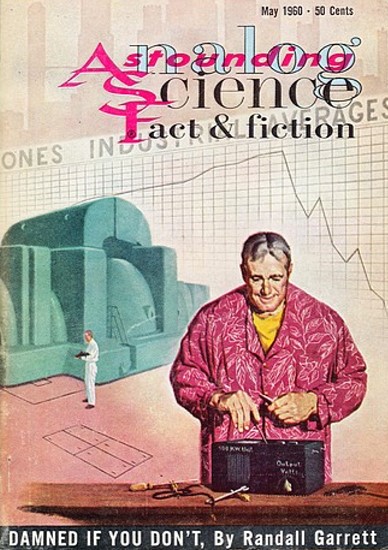
The May 1960 Astounding only has five pieces apart from the second part of the "Mark Phillips" serial, Out like a Light. I won't review the serial until its completion next month.
Astounding perennial Randall Garrett contributes the lead novella, the promising but ultimately flawed Damned if you Don't. In 1981, an enterprising scientist develops a perfect, tiny energy source that threatens to throw the entire planet's economy into chaos. Everyone is out to stop him, from the power company to the government. The first half is pleasant reading, with some reasonably good characterization and suspense as to who's actually after the powerful "Converter" machines. There's another nod to Murray Leinster by name. At one point, there is a description of a computer small enough to have been knocked over by a single person, which is an interesting extrapolation of miniaturization trends.
But then the story gets talky. There is a meaningless aside describing a lukewarm Middle Eastern and European war in the late '60s that leads to a clamp down on private scientific investigations. It is meaningless not only for its implausibility but also for the fact that it doesn't really have any bearing on the story. Then there are pages of discussion on how release of the device will destroy the world as we know it. These are capped off with the realization that the device has been stolen, and it's all a moot point. So much for that story.
Then we have John Cory's three-pager Egocentric Orbit. Twice before, astronauts have been launched into space and refused to come down. In this story, following the third orbital astronaut, we find out why.
Laurence Janifer, one half of the pair that is Mark Phillips (the other being Randall Garrett) has a decent story under the pseudonym "Larry M. Harris." It's a period piece set in 1605 called Wizard, and it involves a brotherhood of telepaths attempting to thwart the inquisition, which threatens to wipe their breed from the Earth.
The final fiction entry is Mack Reynold's pedestrian Revolution, which entertains a number of ridiculous propositions. Item: the Soviet Union will surpass the United States in production in just seven years. Item: a revolution is easy to incite so long as you throw lots of money at the problem. Item: if you think the USSR is productive now, wait until bright-eyed Syndicalist Technocrats take over!
Much like Garrett's opening story, the latter half is composed mostly of speeches justifying the plot line, and the ending features the revolution's catalyst, a western agent, suggesting that the revolution be aborted lest the USSR someday truly trounce the West. Pretty bad stuff.
On the other hand, Dr. Asimov is back with a nice long piece (The March of the Phyla) on the various animal groups and the successive adaptations that allowed them to increasingly become masters of their environment rather passive creatures vulnerable to the caprice of Mother Nature. It's a bit teleological in its presentation, but quite informative.
I just have to wonder when Asimov will supplant Ley at Galaxy and monopolize all of the digests. Nice racket if you can get it…
So, there you have it. A magazine largely written by just two authors (Garrett and Janifer), suffused with smugness, even the non-fiction, featuring psionics and super-inventions, none of it terribly well-written. Campbell's got to find some new blood, or Astounding is going to founder, I fear. Perhaps Harry Harrison offers some hope—his Deathworld was the overwhelming favorite of the fans, per the Analytical Laboratory (the magazine's reader survey) for January and February. More like that would help.
There's an exciting launch coming tomorrow. If it's successful, I'll see you on the 2nd with an update on… TIROS.
—
(Confused? Click here for an explanation as to what's really going on)
This entry was originally posted at Dreamwidth, where it has comments. Please comment here or there.



